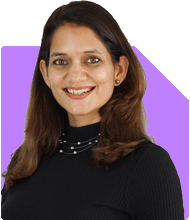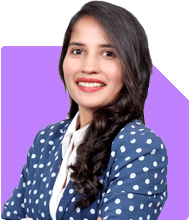Reflux vs. Belching vs. Hiccups: 3 Common Issues Explained for a 50-Year-Old Woman
Dr Chandrakant Lahariya | Answer |Ask -Follow
Diabetologist, Consultant Physician, Vaccine Expert - Answered on Oct 21, 2024
The Delhi-based senior physician also has over 20 years of experience in hypertension, thyroid disorders and respiratory illnesses.
An expert on common health issues and the preventive aspects of medicine, he has co-authored the book, Till We Win: India's Fight Against The Covid-19 Pandemic.
Dr Chandrakant completed his MBBS from the Maulana Azad Medical College, New Delhi, and his MD from the Lady Hardinge Medical College, New Delhi.
He has a DNB (National Board of Examination, 2009) certification and a diploma in vaccinology from Institut Pasteur, Paris.... more

Reflux/ BelchingHiccups what’s the difference and what steps to be taken to control them
Belching is usually linked to excessive air swelling during the food. It mostly is self limiting phenomenon.
Hiccups are also usually normal incidents. They are mostly due to contraction of diaphragm. If not controlled in 24 to 36 hours, please consult a physician.
Dr Chandrakant Lahariya
Centre for Health: The Specialty Practice,
Safdarjung Enclave, New Delhi
You may like to see similar questions and answers below
Namita Piparaiya | Answer |Ask -Follow
Yoga, Wellness Expert - Answered on Jun 20, 2023
Dr Karthiyayini Mahadevan | Answer |Ask -Follow
General Physician - Answered on Jan 02, 2024
Shreya Shah | Answer |Ask -Follow
Nutritionist, Diabetes Educator - Answered on Feb 17, 2024
Shreya Shah | Answer |Ask -Follow
Nutritionist, Diabetes Educator - Answered on Jun 11, 2024
Dr Karthiyayini Mahadevan | Answer |Ask -Follow
General Physician - Answered on Oct 21, 2024
Dr Dipankar Dutta |1837 Answers |Ask -Follow
Tech Careers and Skill Development Expert - Answered on Dec 05, 2025
Dr Shyam Jamalabad |108 Answers |Ask -Follow
Dentist - Answered on Dec 05, 2025
Dr Shyam Jamalabad |108 Answers |Ask -Follow
Dentist - Answered on Dec 05, 2025
Dr Shyam Jamalabad |108 Answers |Ask -Follow
Dentist - Answered on Dec 05, 2025
Dr Dipankar Dutta |1837 Answers |Ask -Follow
Tech Careers and Skill Development Expert - Answered on Dec 05, 2025
Ulhas Joshi |280 Answers |Ask -Follow
Mutual Fund Expert - Answered on Dec 05, 2025
Dr Dipankar Dutta |1837 Answers |Ask -Follow
Tech Careers and Skill Development Expert - Answered on Dec 04, 2025
Ravi Mittal |676 Answers |Ask -Follow
Dating, Relationships Expert - Answered on Dec 04, 2025
Anu Krishna |1745 Answers |Ask -Follow
Relationships Expert, Mind Coach - Answered on Dec 04, 2025
Anu Krishna |1745 Answers |Ask -Follow
Relationships Expert, Mind Coach - Answered on Dec 04, 2025





























